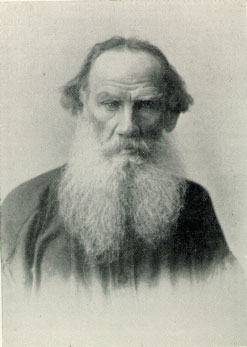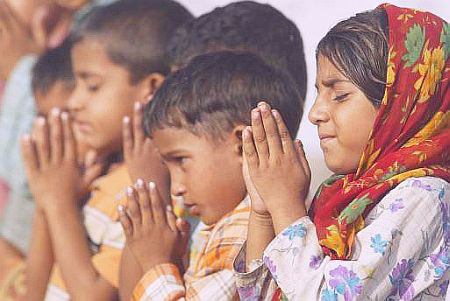AN APPEAL FOR SUPPORT
- We seek your support to meet expenses relating to formatting of articles and books, maintaining and running the journal through hosting, correrspondences, etc.Please write to the Editor in his e-mail address mthirumalai@comcast.net to find out how you can support this journal.
Also please use the AMAZON link to buy your books. Even the smallest contribution will go a long way in supporting this journal. Thank you. Thirumalai, Editor.
BOOKS FOR YOU TO READ AND DOWNLOAD FREE!
- A STUDY OF THE SKILLS OF READING
COMPREHENSION IN ENGLISH DEVELOPED BY STUDENTS OF STANDARD IX IN THE SCHOOLS IN TUTICORIN DISTRICT, TAMILNADU ...
A. Joycilin Shermila, Ph.D. - A Socio-Pragmatic Comparative Study of Ostensible Invitations in English and Farsi ...
Mohammad Ali Salmani-Nodoushan, Ph.D. - ADVANCED WRITING - A COURSE TEXTBOOK ...
Parviz Birjandi, Ph.D.
Seyyed Mohammad Alavi, Ph.D.
Mohammad Ali Salmani-Nodoushan, Ph.D. - TEXT FAMILIARITY, READING TASKS, AND ESP TEST PERFORMANCE: A STUDY ON IRANIAN LEP AND NON-LEP UNIVERSITY STUDENTS - A DOCTORAL DISSERTATION ...
Mohammad Ali Salmani-Nodoushan, Ph.D. - A STUDY ON THE LEARNING PROCESS OF ENGLISH
BY HIGHER SECONDARY STUDENTS
WITH SPECIAL REFERENCE TO DHARMAPURI DISTRICT IN TAMILNADU ...
K. Chidambaram, Ph.D. - SPEAKING STRATEGIES TO OVERCOME COMMUNICATION
DIFFICULTIES IN THE TARGET LANGUAGE SITUATION - BANGLADESHIS IN NEW ZEALAND ...
Harunur Rashid Khan - THE PROBLEMS IN LEARNING MODAL AUXILIARY VERBS IN ENGLISH AT HIGH SCHOOL LEVEL ...
Chandra Bose, Ph.D. Candidate - THE ROLE OF VISION IN LANGUAGE LEARNING
- in Children with Moderate to Severe Disabilities ...
Martha Low, Ph.D. - SANSKRIT TO ENGLISH TRANSLATOR ...
S. Aparna, M.Sc. - A LINGUISTIC STUDY OF ENGLISH LANGUAGE CURRICULUM AT THE SECONDARY LEVEL IN BANGLADESH - A COMMUNICATIVE APPROACH TO CURRICULUM DEVELOPMENT by
Kamrul Hasan, Ph.D. - COMMUNICATION VIA EYE AND FACE in Indian Contexts by
M. S. Thirumalai, Ph.D. - COMMUNICATION
VIA GESTURE: A STUDY OF INDIAN CONTEXTS by M. S. Thirumalai, Ph.D. - CIEFL Occasional
Papers in Linguistics,
Vol. 1 - Language, Thought
and Disorder - Some Classic Positions by
M. S. Thirumalai, Ph.D. - English in India:
Loyalty and Attitudes
by Annika Hohenthal - Language In Science
by M. S. Thirumalai, Ph.D. - Vocabulary Education
by B. Mallikarjun, Ph.D. - A CONTRASTIVE ANALYSIS OF HINDI
AND MALAYALAM
by V. Geethakumary, Ph.D. - LANGUAGE OF ADVERTISEMENTS
IN TAMIL
by Sandhya Nayak, Ph.D. - An Introduction to TESOL:
Methods of Teaching English
to Speakers of Other Languages
by M. S. Thirumalai, Ph.D. - Transformation of
Natural Language
into Indexing Language:
Kannada - A Case Study
by B. A. Sharada, Ph.D. - How to Learn
Another Language?
by M.S.Thirumalai, Ph.D. - Verbal Communication
with CP Children
by Shyamala Chengappa, Ph.D.
and M.S.Thirumalai, Ph.D. - Bringing Order
to Linguistic Diversity
- Language Planning in
the British Raj by
Ranjit Singh Rangila,
M. S. Thirumalai,
and B. Mallikarjun
REFERENCE MATERIAL
- UNIVERSAL DECLARATION OF LINGUISTIC RIGHTS
- Lord Macaulay and
His Minute on
Indian Education - In Defense of
Indian Vernaculars
Against
Lord Macaulay's Minute
By A Contemporary of
Lord Macaulay - Languages of India,
Census of India 1991 - The Constitution of India:
Provisions Relating to
Languages - The Official
Languages Act, 1963
(As Amended 1967) - Mother Tongues of India,
According to
1961 Census of India
BACK ISSUES
- FROM MARCH 2001.
- FROM JANUARY 2002.
- INDEX OF ARTICLES
FROM MARCH, 2001
to MARCH 2007. - INDEX OF AUTHORS
AND THEIR ARTICLES
FROM MARCH, 2001
- MARCH 2007
- E-mail your articles and book-length reports in Microsoft Word to mthirumalai@comcast.net.
- Contributors from South Asia may send their articles to
B. Mallikarjun,
Central Institute of Indian Languages,
Manasagangotri,
Mysore 570006, India or e-mail to mallikarjun@ciil.stpmy.soft.net. PLEASE READ THE GUIDELINES GIVEN IN HOME PAGE IMMEDIATELY AFTER THE LIST OF CONTENTS. - Your articles and booklength reports should be written following the MLA, LSA, or IJDL Stylesheet.
- The Editorial Board has the right to accept, reject, or suggest modifications to the articles submitted for publication, and to make suitable stylistic adjustments. High quality, academic integrity, ethics and morals are expected from the authors and discussants.
Copyright © 2007
M. S. Thirumalai
VOICES OF THE MARGINALISED –
THE VOICE OF GOD IN THE LIVES OF PEOPLE
A Study of Leo Tolstoy’s Language
Olive Thambi, M.A., M. Phil.

Simple Pleasures of Life
INDIAN FASCINATION FOR LEO TOLSTOY
Indian fascination for Leo Tolstoy began in great strength with the arrival of Gandhi from South Africa in 1915. He settled down in India finally and began his experiments withTruth through Satyagraha. While in South Africa, his ideas and methods had already been firmed up (Thirumalai 2005). In South Africa, Gandhi established the Phoenix Settlement in 1904 inspired by the reading of John Ruskin’s Unto This Last, and then afterwards he founded Tolstoy Farm to practice simple living in a community context. Since then, generations of young Indians have read Tolstoy’s works with great admiration, longing for a simple way of life, based on Gandhian and Tolstoyan teaching. His works have been translated (and re-translated in some languages) in many Indian languages. His stories apart, his ideas of simple living continue to attract young people to him.
SOUL OF THE MODERN WORLD?

Chesterton, et al. wrote that Leo Tolstoy might be viewed “as the soul of the modern world seeking to replace in its love of humanity the life of those old religions which science is destroying day by day. In this sense Tolstoy will stand in European literature as the conscience of the modern world” (Chesterton, Parris, and Garnett 1903:36).
While Chesterton specifically wrote, “Everything in the world, from the Bible to a bootjack, can be, and is, reduced by Tolstoy to this great fundamental Tolstoyan principle, the simplification of life” (page 5), he was also critical of Tolstoy: “The truth is that Tolstoy, with his immense genius, with his colossal faith, with his vast fearlessness and vast knowledge of life, is deficient in one faculty and one faculty alone. He is not a mystic: and therefore he has a tendency to go mad. Men talk of the extravagances and frenzies that have been produced by mysticism: they are a mere drop in the bucket. In the main, and from the beginning of time, mysticism has kept men sane. The thing that has driven them mad was logic” (Chesterton, Parris, and Garnett 1903:6).
Chesterton, in particular, was not happy with the kind of (Christian) anarchism that Tolstoy’s ideas and writings could bring about. Without specifically mentioning Tolstoy, Chesterton wrote, “A sect of men start with no theology at all, but with the simple doctrine that we ought to love our neighbour and use no force against him, and they end in thinking it wicked to carry a leather handbag, or to ride in a cart. A great modern writer who erases theology altogether, denies the validity of the Scriptures and the Churches alike, forms a purely ethical theory that love should be the instrument of reform, and endsby maintaining that we have no right to strike a man if he is torturing a child before our eyes. He goes on, he develops a theory of the mind and the emotions, which might be held by the most rigid atheist, and he ends by maintaining that the sexual relation out of which all humanity has come, is not only not moral, but is positively not natural. This is fanaticism as it has been and as it will always be (Chesterton, Parris, and Garnett 1903:6).
RELAXED TOGETHERNESS AND MORAL OVERTONES
Leo Tolstoy has used language to appeal to human emotions. He uses it to connect people and bring them together in an atmosphere of relaxed togetherness. It is in this context that he intersperses his language with moral overtones.

Simple Prayers
Bilingual Advertising in a Multilingual Country | Need for an Active Dictionary for the Advanced Learners of English in Pakistan | Voices of the Marginalised - The Voice of God in the Lives of the People
A Study of Leo Tolstoy's Language | Gandhi's Ideology on the Empowerment of Women | N. Palanivelu: A Pioneer among the Tamil Writers of Malaysia and Singapore | Strategies for Communication Skills Development for the Students of Engineering Colleges in India | LANGUAGE NEWS THIS MONTH -
Ethnic Killing in India, Etc. | On Refining Your Etiquette -CHAPTER 8 -- WORDS, PHRASES AND PRONUNCIATION - From the Book of Etiquette by Emily Post, 1922 | HOME PAGE OF APRIL 2007 ISSUE | HOME PAGE | CONTACT EDITOR
Olive Thambi, M.A., M.Phil.
Department of Science and Humanities
Karunya University
Coimbatore
Tamilnadu
India
olive_bluebell@yahoo.co.in
- Send your articles
as an attachment
to your e-mail to
mthirumalai@comcast.net. - Please ensure that your name, academic degrees, institutional affiliation and institutional address, and your e-mail address are all given in the first page of your article. Also include a declaration that your article or work submitted for publication in LANGUAGE IN INDIA is an original work by you and that you have duly acknolwedged the work or works of others you either cited or used in writing your articles, etc. Remember that by maintaining academic integrity we not only do the right thing but also help the growth, development and recognition of Indian scholarship.
